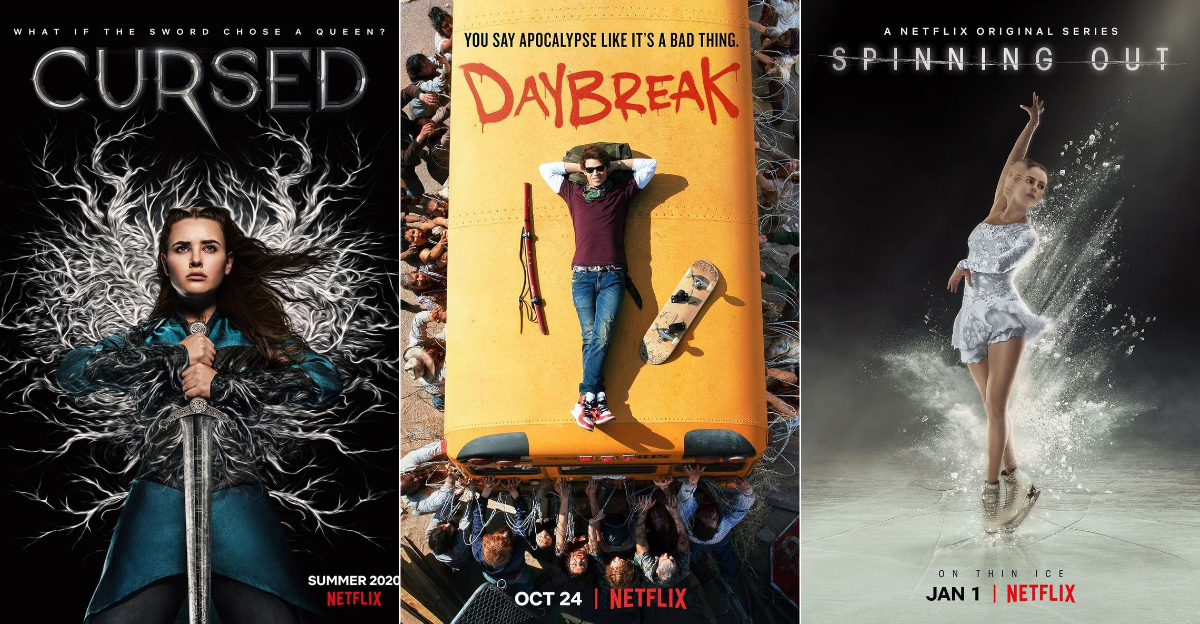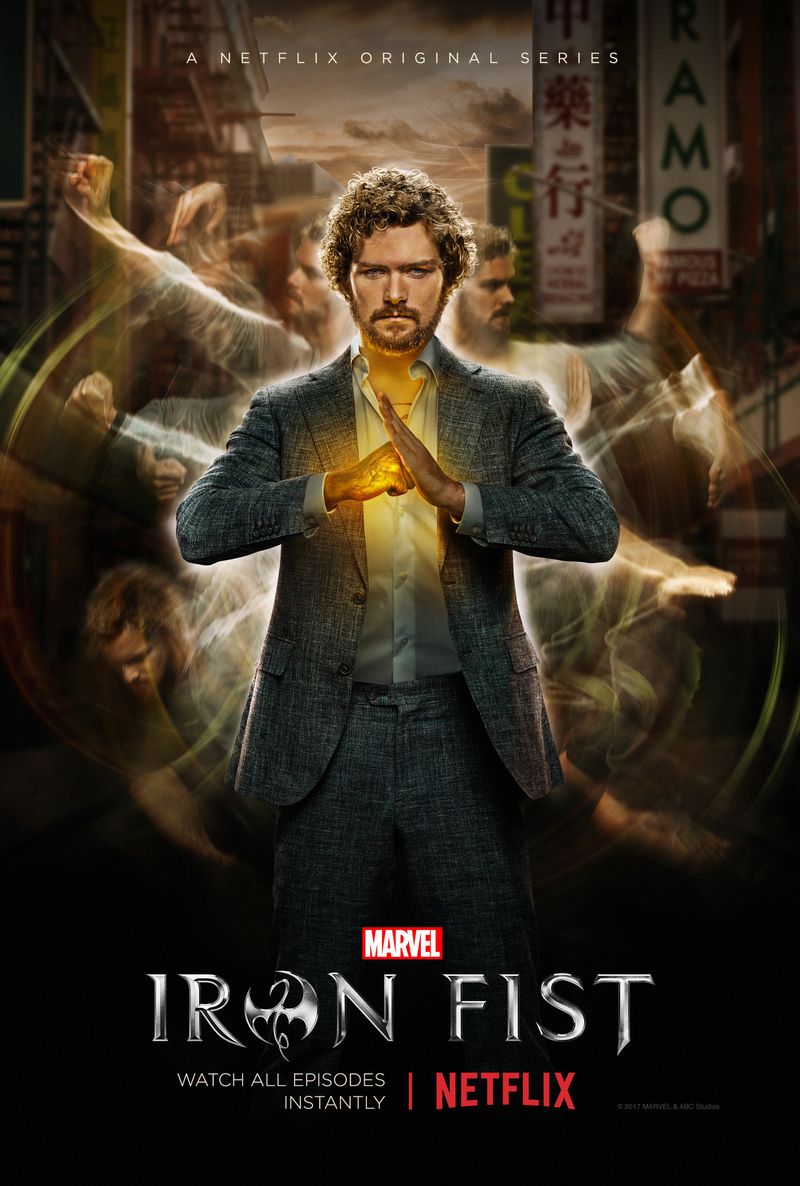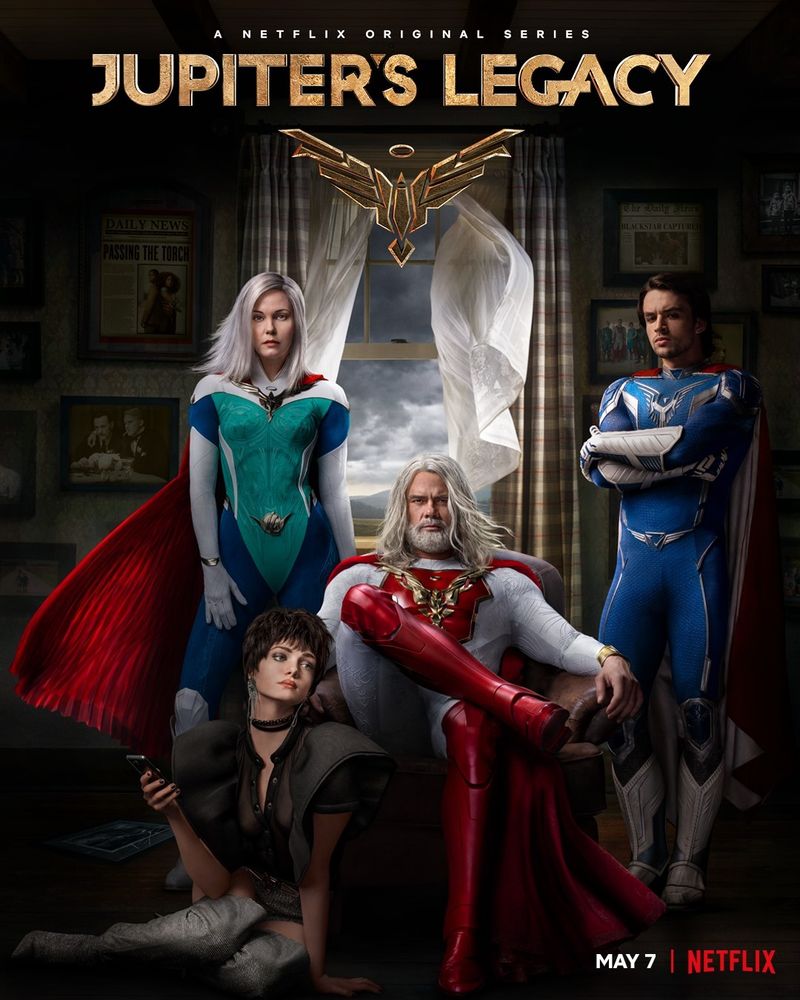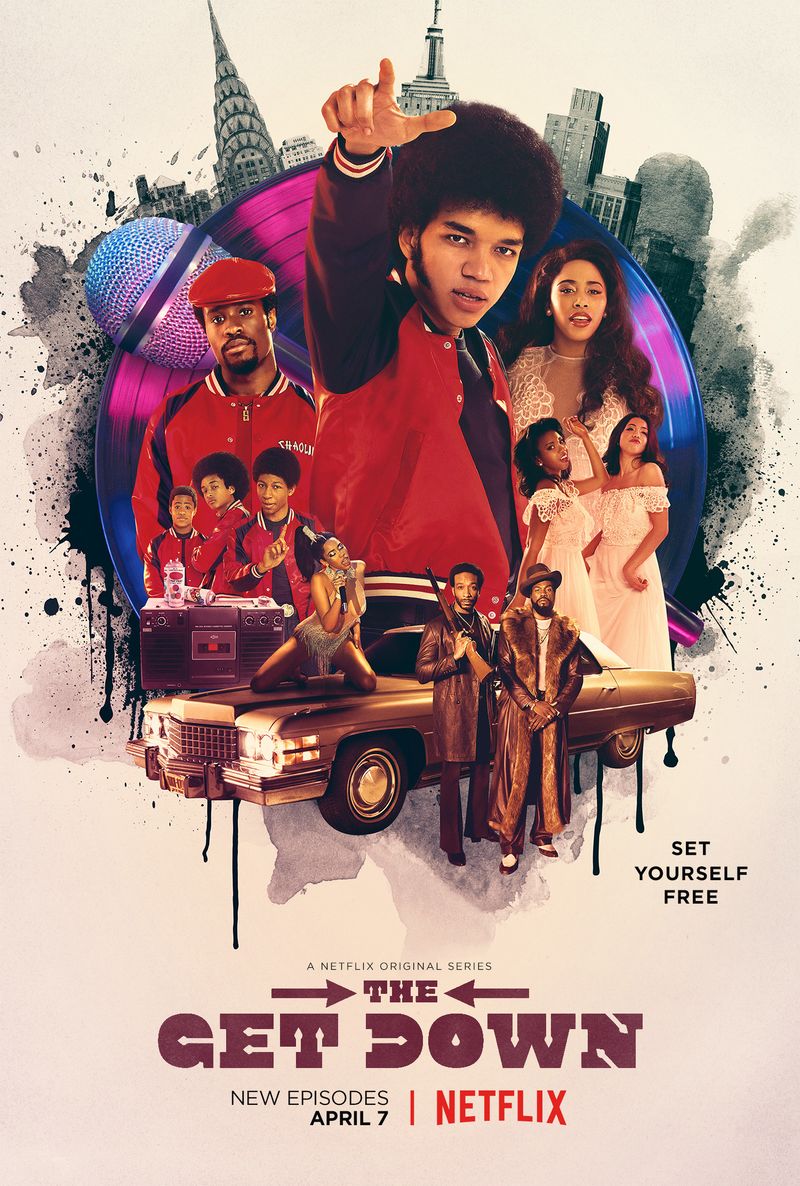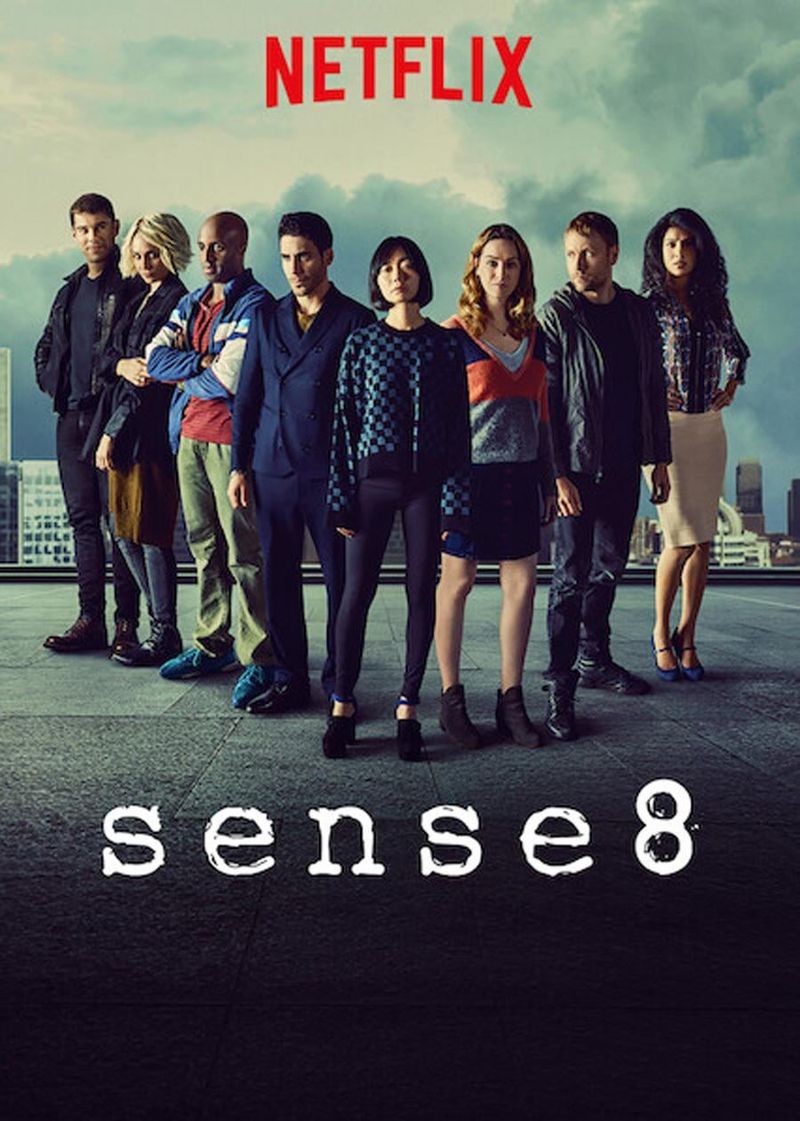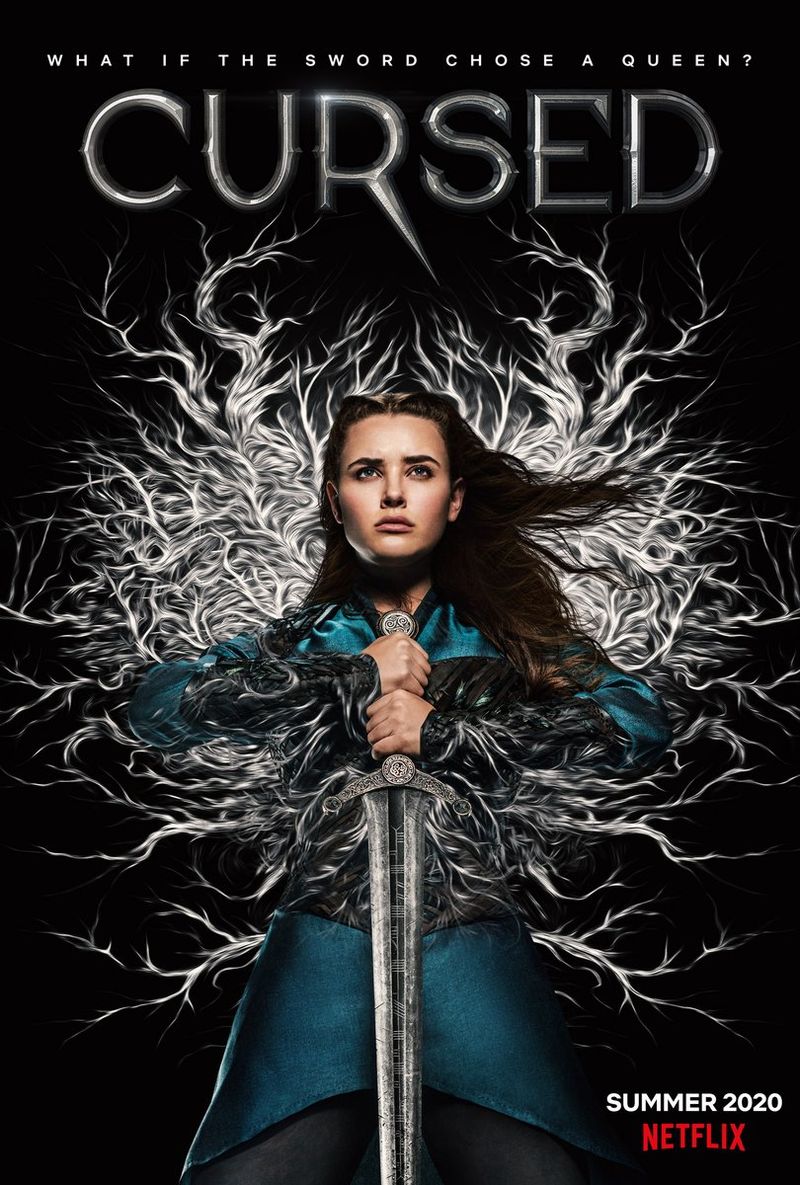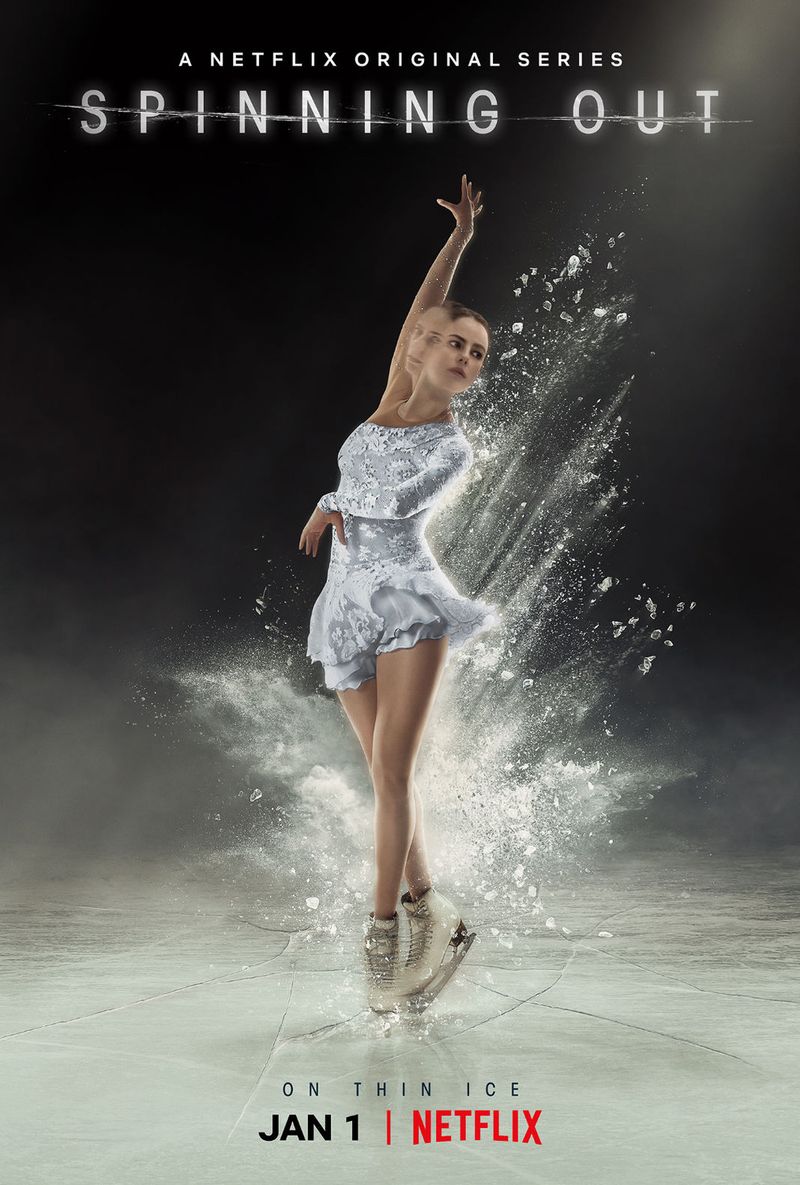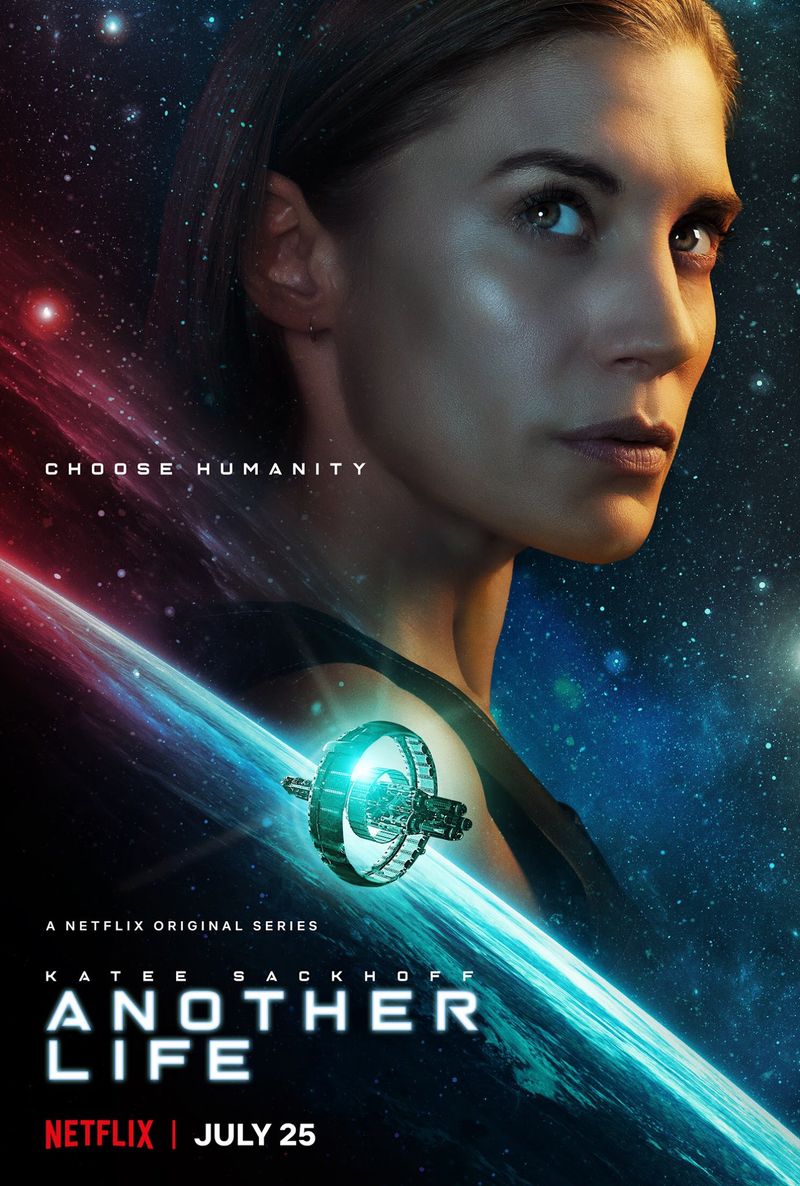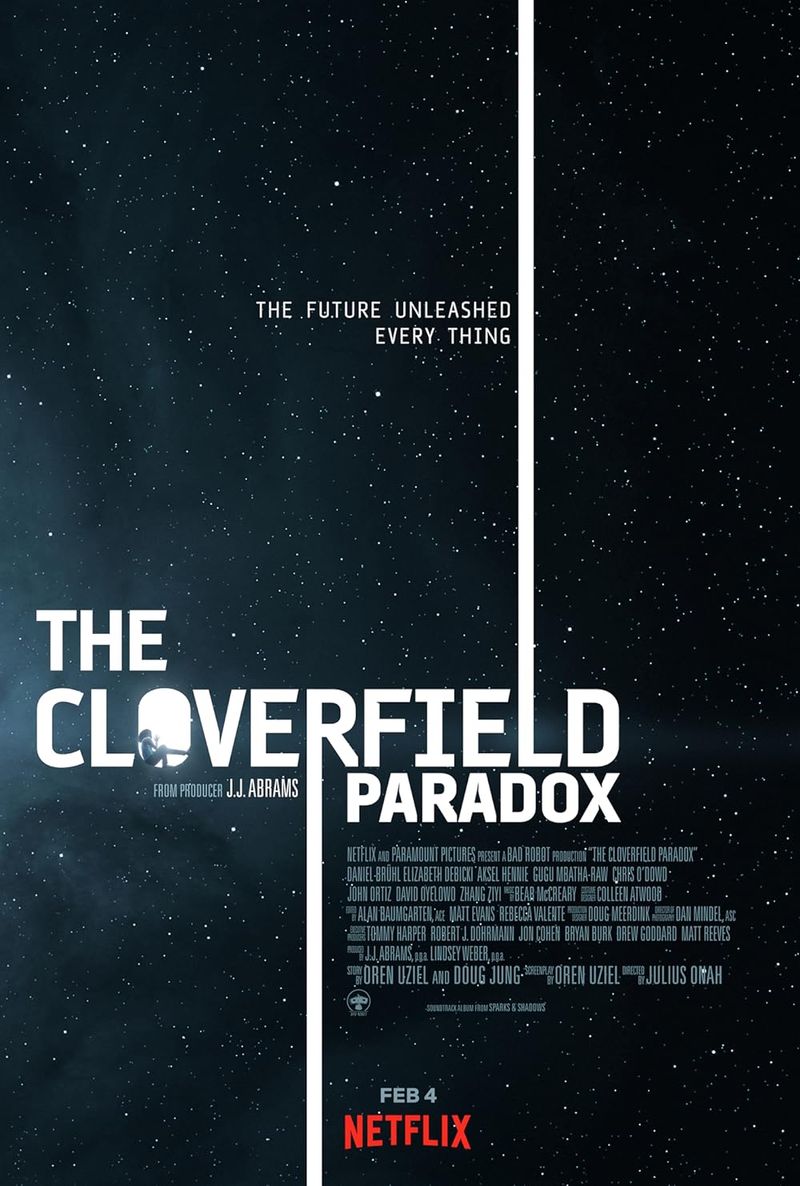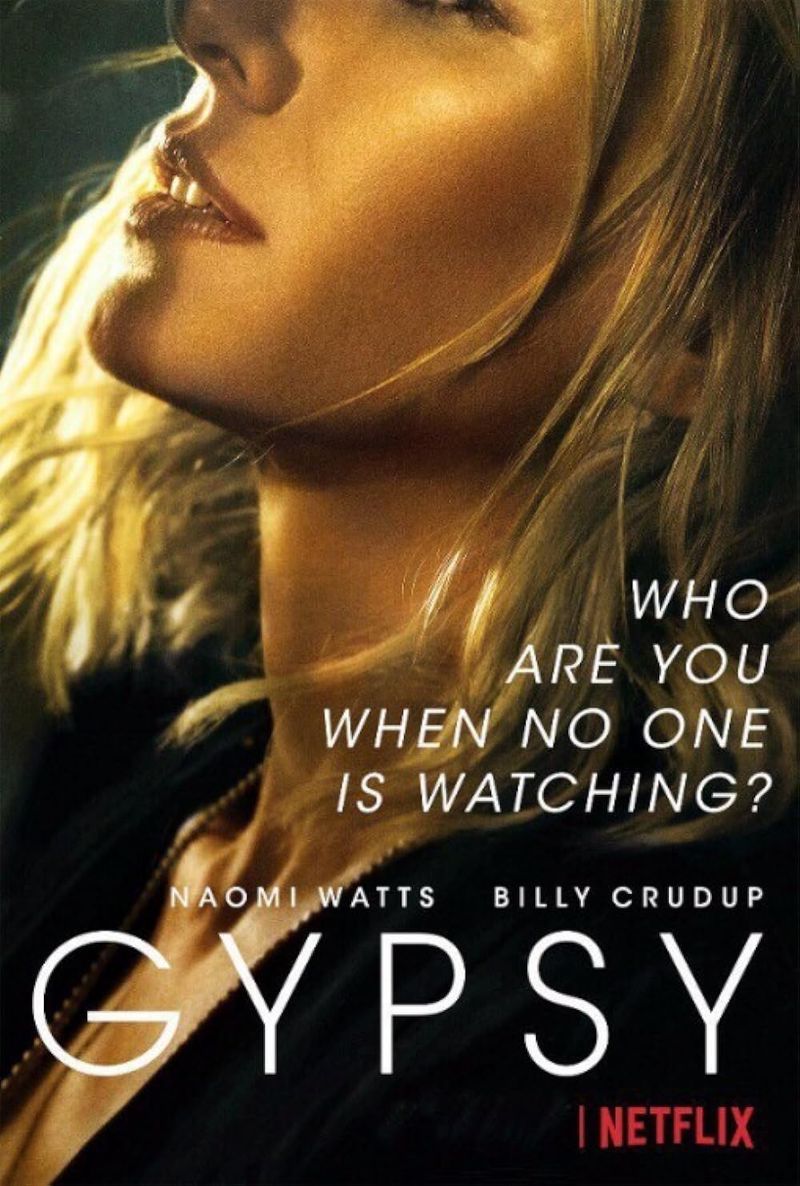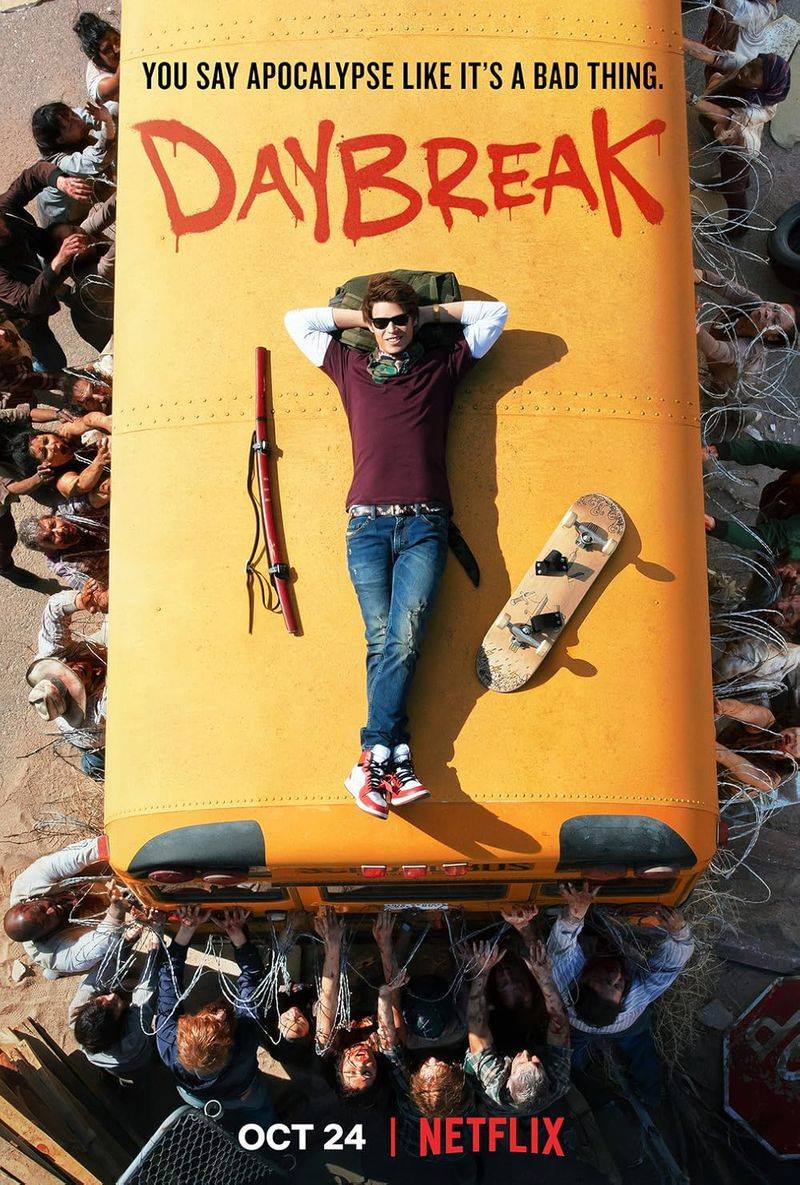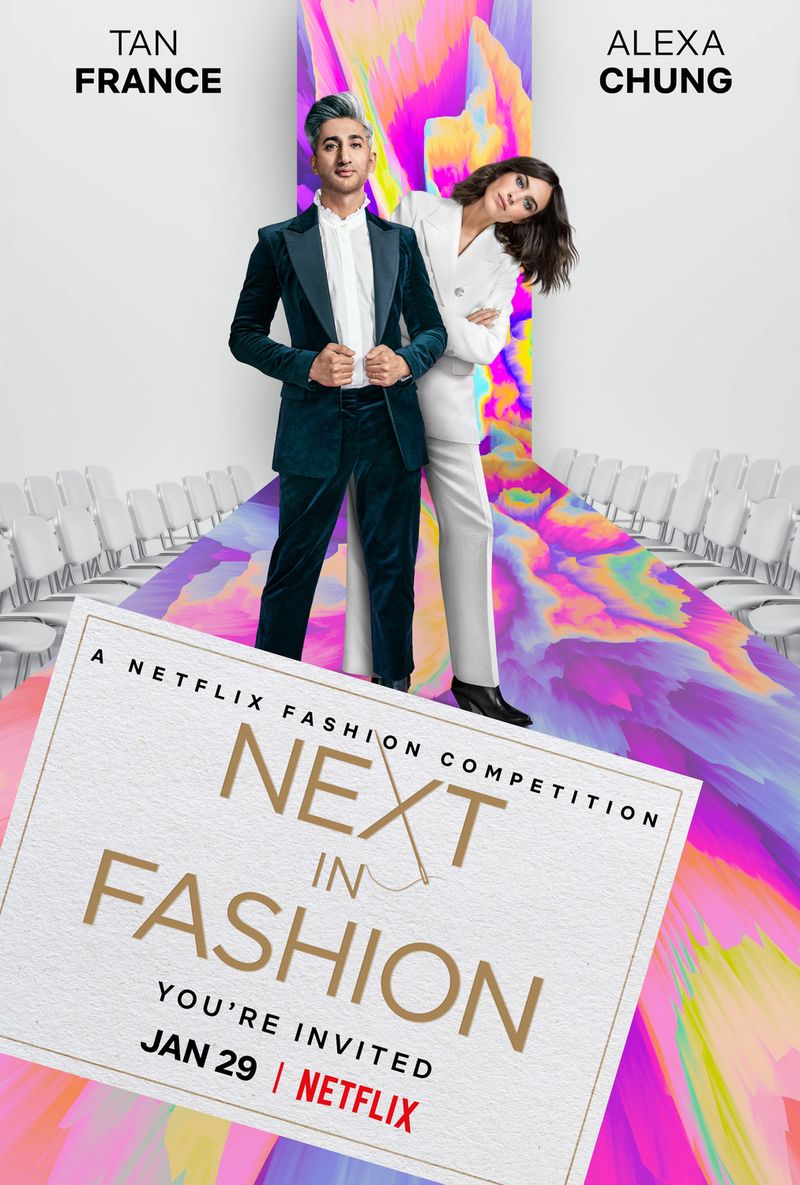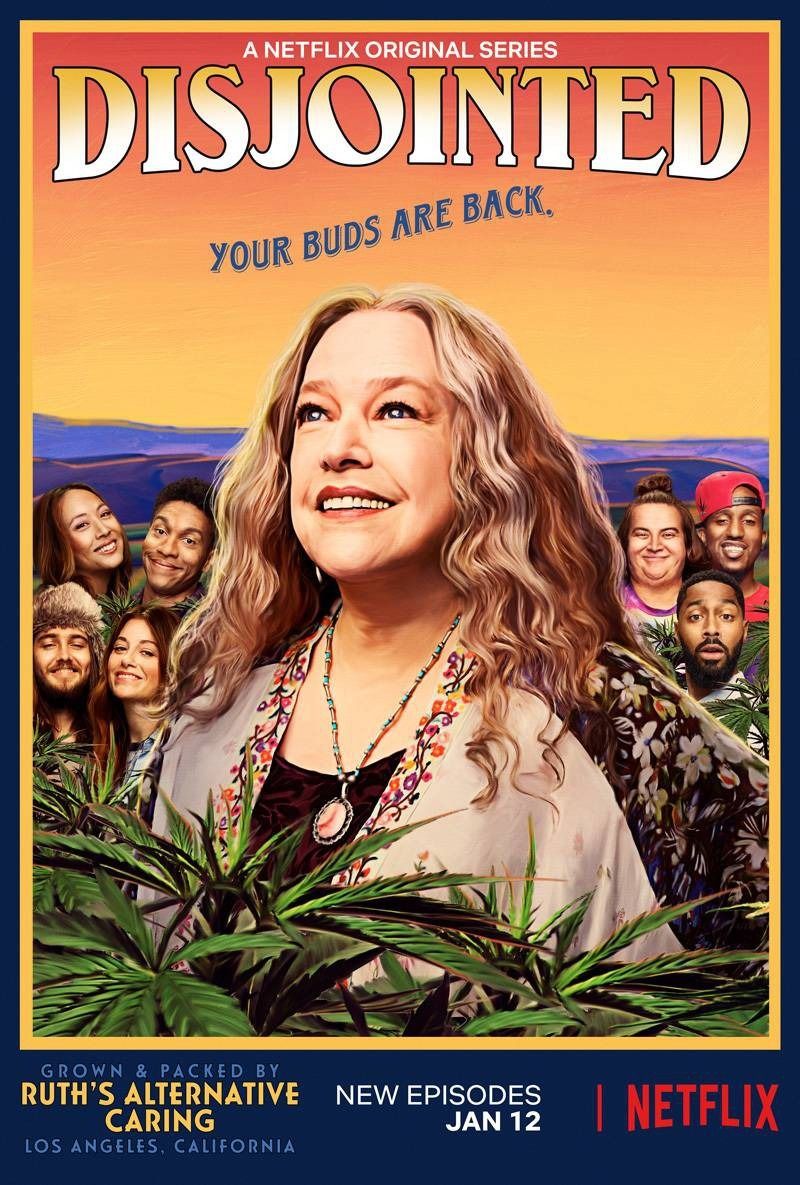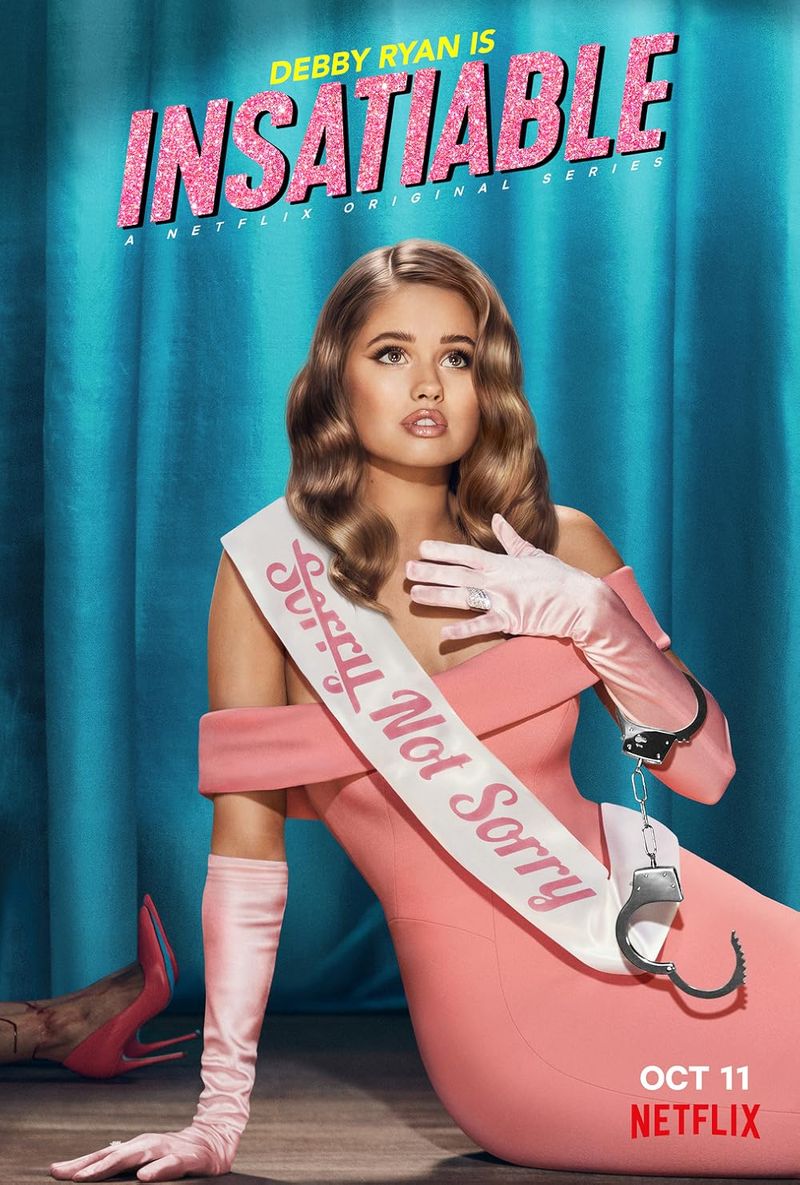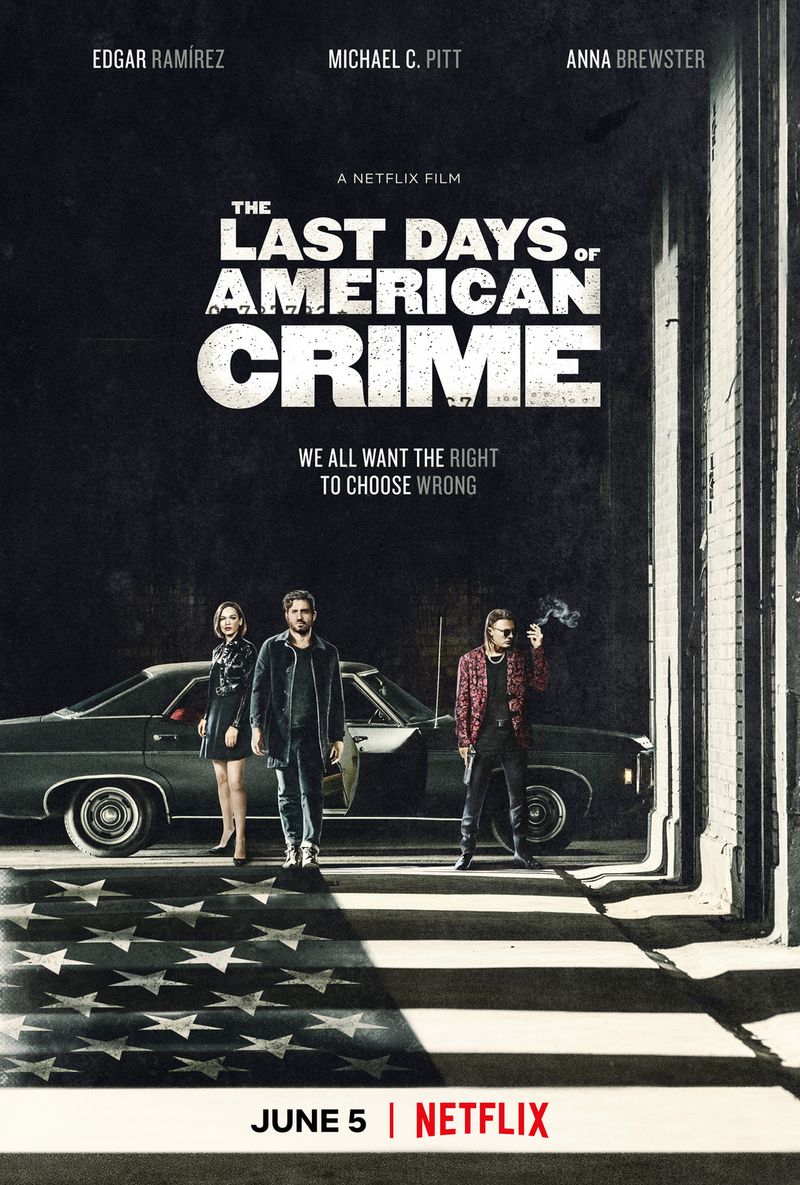Netflix has delivered countless hits, but not every project strikes gold. From ambitious adaptations to series that simply didn’t resonate, here are 15 Netflix endeavors that left audiences perplexed.
This collection of misfires demonstrates that even the streaming giant isn’t immune to the occasional disappointment, reminding viewers that high expectations don’t always equate to success.
1. Iron Fist (2017)
Iron Fist aimed to expand Marvel’s footprint on Netflix but stumbled with its slow pacing and lackluster fight scenes. Fans were eager to see Danny Rand, the titular hero, in action but were met with a story that felt sluggish and uninspired.
The series struggled to find its footing, with criticisms aimed at its narrative weaknesses and the lead character’s portrayal.
Despite high hopes, this entry into the Marvel universe failed to live up to its predecessors, leaving viewers yearning for the dynamic storytelling seen in other Marvel series. Ultimately, Iron Fist became an example of potential unrealized.
2. The I-Land (2019)
The I-Land premiered with a promising premise: a group of people waking up on a mysterious island. However, the execution fell flat, with critics pointing to its derivative plot and lack of character development.
Viewers expected a thrilling, psychological ride but were instead treated to a confusing narrative with plot holes and clichéd twists. The show tried to blend elements of sci-fi and survival, yet failed to deliver a gripping story.
Despite its intriguing start, The I-Land quickly became a cautionary tale of style over substance in Netflix’s original programming.
3. Jupiter’s Legacy (2021)
Jupiter’s Legacy sought to reimagine the superhero genre with a focus on family dynamics and legacy. Unfortunately, it stumbled under the weight of its ambitions, offering a disjointed narrative that puzzled many viewers.
The series featured a talented cast and impressive visuals, yet struggled to weave its complex themes into a cohesive storyline. The pacing issues and fragmented plot left audiences disconnected.
Despite its potential, Jupiter’s Legacy found itself overshadowed by more coherent superhero tales, leaving fans questioning what went wrong with its execution.
4. The Get Down (2016)
The Get Down was Baz Luhrmann’s ambitious take on the birth of hip-hop, set in 1970s Bronx. While visually stunning and musically rich, the show grappled with high production costs and inconsistent storytelling.
Fans appreciated its vibrant portrayal of the era, but the series struggled with pacing and a sprawling cast that sometimes muddled the central narrative. Despite its creative flair, it couldn’t sustain audience engagement over its run.
The Get Down remains a visually captivating yet flawed exploration of a pivotal cultural moment, overshadowed by its production challenges.
5. Sense8 (2015–2018)
Sense8 offered a unique take on connectivity, following eight individuals worldwide linked by a mysterious bond. Despite its innovative premise, the series faced challenges with its complex narrative and costly production.
Fans cherished its diversity and bold storytelling, yet some were overwhelmed by its intricate plotlines and sprawling cast. The show’s ambition was both its strength and downfall, as it sometimes lost focus.
After mixed reviews, Sense8 remains a cult favorite, celebrated for its daring approach but also critiqued for its uneven execution.
6. Cursed (2020)
Cursed aimed to retell the Arthurian legend from a fresh perspective, focusing on Nimue, the Lady of the Lake. While visually compelling, the series struggled with pacing and character development.
Viewers were intrigued by its premise but found the execution lacking, as the plot often meandered without clear direction. Despite a strong lead performance, the show couldn’t fully engage its audience.
Ultimately, Cursed became another example of Netflix’s struggle to maintain consistency in adapting beloved myths for modern audiences.
7. Spinning Out (2020)
Spinning Out attempted to blend the worlds of competitive figure skating and personal drama. The series captured the glitz of the sport but faltered in delivering a compelling story.
Fans were drawn to the intricate skating sequences, yet the narrative often felt predictable and lacked depth in character arcs. The show’s attempt to tackle mental health issues was commendable but sometimes overshadowed by melodrama.
In the end, Spinning Out skated on thin ice, with its potential hindered by clichéd storytelling that didn’t quite land.
8. Another Life (2019–2021)
Another Life ventured into the realm of interstellar exploration, promising an epic sci-fi adventure. However, viewers found the series marred by clichéd plots and uneven pacing.
Despite a strong lead and intriguing premise, the show’s execution often felt derivative, with predictable twists and underdeveloped characters. The ambitious scope sometimes overwhelmed the narrative coherence.
While it had moments of visual brilliance, Another Life never quite reached the heights of its sci-fi predecessors, leaving audiences yearning for deeper engagement and originality.
9. The Cloverfield Paradox (2018)
The Cloverfield Paradox attempted to expand the Cloverfield universe with a space-set thriller. Despite its ambitious setup, the film was criticized for its convoluted plot and lack of cohesion.
Audiences were eager for answers to the franchise’s mysteries but were met with more questions and a storyline that sometimes felt disconnected from its predecessors. The film’s release strategy added to the intrigue but couldn’t mask its narrative flaws.
In the end, The Cloverfield Paradox struggled to find its place, offering more confusion than clarity within its cinematic universe.
10. Gypsy (2017)
Gypsy followed a New York therapist who crossed professional boundaries with her clients. Despite its star-studded cast, the series suffered from a lack of engaging storytelling and character development.
The show presented an intriguing premise but failed to delve deeply into the psychological complexities it promised to explore. Viewers found the narrative slow and directionless, with underwhelming twists.
As a result, Gypsy couldn’t maintain audience interest, serving as a reminder that even a strong cast can’t save a series lacking in substance and momentum.
11. Daybreak (2019)
Daybreak offered a quirky take on the apocalypse, set in a high school environment. While it aimed for humor and irreverence, the series often missed the mark with its uneven tone.
The blend of genres resulted in a narrative that sometimes felt disjointed, leaving viewers puzzled about its direction. Despite creative elements and a unique premise, the execution lacked cohesion.
Ultimately, Daybreak’s attempt to combine comedy with post-apocalyptic drama didn’t resonate widely, highlighting the challenges of balancing humor with dark themes.
12. Next in Fashion (2020)
Next in Fashion aimed to capture the excitement of the fashion world, featuring talented designers competing for a grand prize. Despite its glamorous setting, the show struggled to stand out in a crowded reality TV landscape.
Viewers appreciated the creativity and diverse talent, yet found the series lacked the dramatic tension that often fuels reality competitions. The straightforward format sometimes led to predictable outcomes.
In the competitive realm of fashion shows, Next in Fashion offered style without enough substance to keep audiences fully engaged throughout its run.
13. Disjointed (2017)
Disjointed brought a sitcom approach to the burgeoning cannabis industry, starring Kathy Bates as a dispensary owner. Despite its comedic potential, the show struggled with pacing and humor.
Fans of Bates appreciated her performance, yet the series often relied on clichéd stoner jokes, missing opportunities for deeper satire. The laugh-track format felt outdated to some viewers.
Disjointed ultimately failed to capitalize on its promising premise, highlighting the challenges of balancing traditional sitcom elements with modern, topical themes.
14. Insatiable (2018)
Insatiable sparked controversy with its premise, following a bullied teenager turned beauty queen. The series faced criticism for its handling of sensitive issues and perceived tone-deafness.
Despite moments of dark comedy, the show’s reliance on stereotypes and lack of nuance in addressing complex topics garnered backlash. Viewers questioned its intentions and impact.
In the end, Insatiable became a contentious entry in Netflix’s lineup, illustrating the difficulties of tackling provocative themes without adequate sensitivity or depth.
15. The Last Days of American Crime (2020)
“The Last Days of American Crime,” released in 2020, attempted to blend a dystopian setting with intense action, but the outcome was baffling.
The plot, centered around a crime-ridden future America, promised thrills, but the execution fell flat for many viewers. Critics pointed out its convoluted storyline and excessive length.
The film’s attempt to comment on societal issues was overshadowed by its lackluster character development and pacing. Despite a high-stakes premise, it struggled to maintain engagement.
This Netflix original serves as a lesson that not every ambitious concept translates into a successful film experience.
